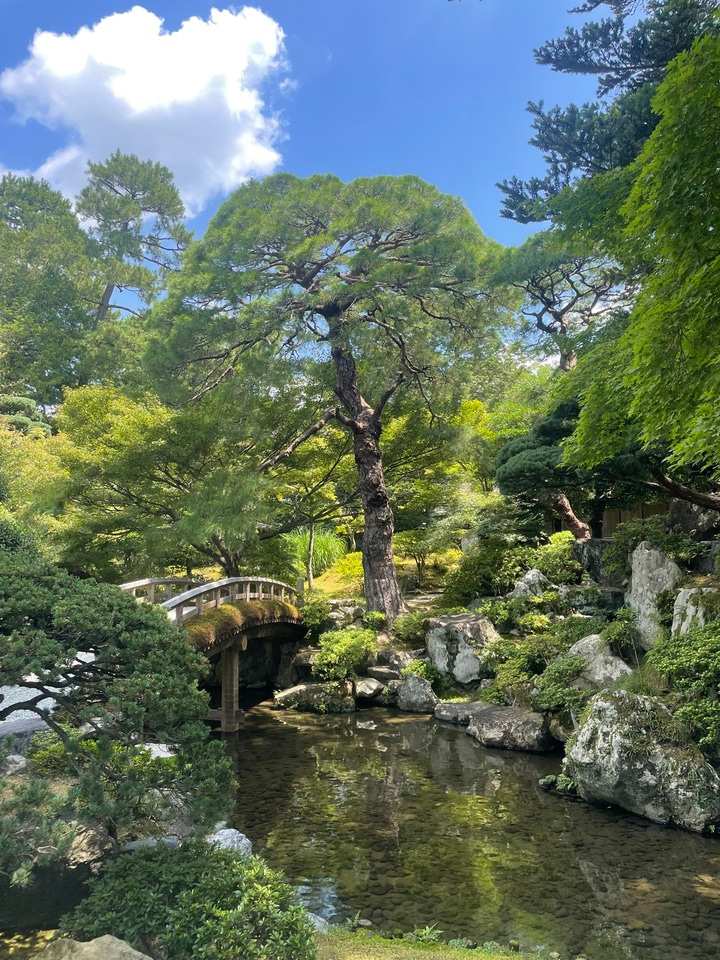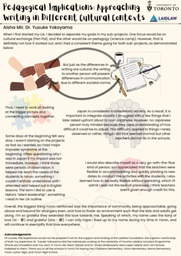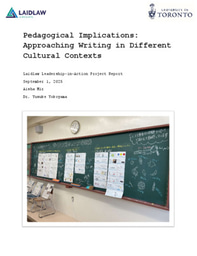Experience Abroad Reflection

I remember taking a bus with my luggage to a hotel in which the location was pinpointed to be in a city hall, and when I arrived, the workers stared at me like I came from a UFO, but I think the stares were a result of me carrying my entire life across Japan. Despite the language barrier, they helped me with Google Translate and by some miracle, I was close to the train station that had a shuttle bus that would take me to the hotel. So off I go, in the scorching sun and sweating like crazy, waiting for the bus for an hour, except… that entire hour was spent finding the shuttle because where the shuttle was supposed to stop, there was a no bus sign and I wanted to cry because my phone was 2% and I didn’t know Japanese to ask someone. But as if someone was sent to me, there was a lady waiting at the same place that I kept walking back and forth from and I showed her the Japanese translated message, and she told me, “Koko!” which meant, here. Truly, it is thanks to the kindness of many Japanese that I was able to find my way around.
I think this was the first time I had seen concepts in my faith be adapted in a different cultural context. Another instance of this was seeing how easy it was to find halal-friendly or halal food in general in Canada. However, because a lot of sources of food were not specified, such as the shortening, I consumed products to the best of my ability depending on how likely an ingredient was to be plant versus animal derived. This was also because out of all the products I would pick up in a supermarket, I would put away 95% of the food items because there was always some kind of meat in it. Whereas in Canada, it’s very easy to find out the source of ingredients and most people used plant-based ingredients for stuff like cheese. It was the first time I experienced balancing my religion with a different cultural context, and seeing how situations adapted depending on how hard it became to practice parts of my faith was really interesting. Everyone in Japan was also super accommodating of my dietary restrictions. They even wanted to understand it to the point where Yoron High School asked me to give a presentation on halal food. I also remember I really wanted shaved ice from somewhere, and they made it without gelatin for me so I could eat it and asked me if some other ingredients were okay. I’m incredibly grateful and privileged to have such kind people consider that, and it reminds me of when You Jia would order halal food too, which was so nice especially since I was the only Muslim in our cohort. ☺️
I think I was also excused for a lot of things because I was a foreigner, and as I learned about some things, I ended up changing how I did my hair or some habits. For example, typically teachers would not drink water while in the classroom, and I always carried around my water bottle. So, I stopped carrying it around and went down to drink water whenever I needed it. I also found out that hair above the shoulders should be tied, and started tying my hair when I came to school. I also didn’t wear makeup, since students weren’t allowed that either. The only thing I couldn’t do was take off my earrings, since I was scared to lose them since they were gold and a gift from my mom, but never once did I get asked to do anything. I didn’t want the students or anyone to think I was acting out of line, and I respected how everyone was very polite about any behaviours of mine that may not have been ideal.
One place where I thought I learned a lot about respect and appreciating differences was talking about spirituality and religious beliefs. For example, I really wanted to see the stars because in Yoron, due to the lack of artificial lighting, you could see the Milky Way clearly. However, the place where I wanted to look at it from was said to have someone who drowned themselves. Given this, some of the elders told me that the place was haunted, and although some people said that it was just a story, I said that we shouldn’t go, because I felt that would be disrespecting someone’s beliefs if I didn’t heed the warning. In Yoron, I learned that worshipping ancestors, known as Shintoism, is commonly practiced there. It’s probably why the beach I wanted to go to held significance for some people in Yoron in such a way.
One place where I thought I learned a lot about respect and appreciating differences was in conversations where people held very different worldviews from mine. Some of the kindest people and closest ones I met shared perspectives that, at first, were difficult for me to accept politically. I realized that while I strongly disagreed with some of their opinions, it was still important to listen with an open mind and try to understand where they were coming from. Often, I found that their reasoning came from very different life experiences than my own, and the biggest part was they did not like someone for the reasons I disliked them. That taught me that I don’t need to compromise my own values to hear someone out—but I also don’t need to shut down every disagreement immediately, especially when the disagreement does not come from harmful intentions. I think learning when to engage, when to set boundaries about what are acceptable and unacceptable things to say, and how to listen respectfully was one of the most valuable lessons of my time in Yoron.
One thing I appreciated a lot was the encouragement to learn Japanese and how many people taught me phrases to get by. There’s a way to say thank you in Yoron’s dialect, and if I was speaking with an elderly person or a native to Yoron, I would say thank you using the dialect. They would appreciate me for adjusting to cultural forms of greeting, and it encouraged me to learn more Japanese. When I needed directions to somewhere (like the coin laundry more specifically), the locals would offer to drop me off there. Some told me that people die by trusting others as such, but not in Yoron. I was incredibly lucky to be in a place where there is basically no crime. I hope that someday, the entire world will be full of love and harmony like Yoron. It's a community I would like to foster, a very rare one in today's world.
Japan also made me become comfortable with being alone. I usually never went out alone for activities or for dining, but I think it made me content with being by myself. I had a lot of time to reflect on many things in life, and that's also in part why I think I experienced such profound growth that I can’t really explain in words. I think at first, I felt really lonely without family around, but now I appreciate how I’ve been able to value family more, and how this experience has made me resilient.
I also think I'm so much more comfortable engaging with other cultures. It's to the point where I am as comfortable as entering any unfamiliar institutions as I am with the ones I regularly attend, whether this be in a religious or otherwise context. Communication transcends beyond just speaking the language—it is the compassion, the effort, and the actions of the community which create a deeper connection with those whom I've met. The families I've been with in Yoron are incredibly precious to me. There's something very different about island life, something so peaceful about the people there. Resilient, happy, frugal, patient, and communal.
It is also from them that I had learned that to lead with love is the greatest leadership quality one can exhibit. And I could only embody that because of how the adults led by example, towards their children. Children, in general, are so precious and even as young as we are, we can show them so many things, and we can come to many realizations when spending time with them. For me, it was seeing the importance of having children involved in the community to make them conscious citizens of the island. They have been taught to contribute to their communities to help improve Japan and be future leaders. Even without a leadership program, these children were growing up to be the next change makers, all because of a community and environment the islanders fostered for their children.
Overall, there’s a lot I learned in terms of adapting, respecting, accepting, and appreciating others, and I think I built on my character. Honestly, I remember when Susanna talked about how leadership is about building character at the last conference, and I fully felt like I was in Barbie Princess Charm School hearing her say that (my 10 year old self came out, forgive me). I believe this experience abroad really made me see the true extent of character and how it relates to leadership.
So I’m looking forward to the coronation in September after this wonderful experience. 😋
Acknowledgements
Of course, this experience would not be possible if not for the support and funding of the Laidlaw Foundation, the superior mentorship of both my supervisor Dr. Yusuke Yokoyama and the individuals working at the University of Toronto Laidlaw Scholars Programme (thank you Shraddha and You Jia!). In Yoron, Ms. Kaori Tabata and Dr. Shoko Hirabayashi were super helpful and I am forever indebted to them. Thank you to all the schools in Yoron for having me: Chabana Elementary, Yoron Elementary, Nama Elementary, Yoron Junior High, and Yoron High School.





Please sign in
If you are a registered user on Laidlaw Scholars Network, please sign in